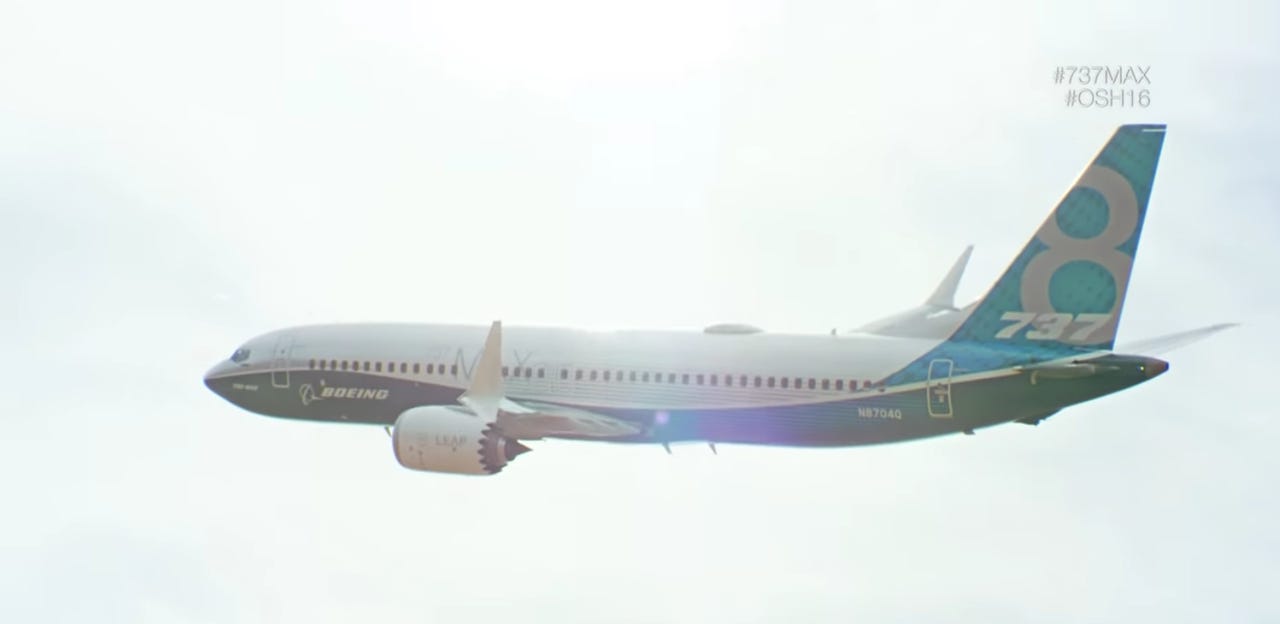The Boeing 737 Max is back? Not everyone is convinced

Still a bumpy ride to come?
Suddenly, there was optimism in the air.
The Points Guy
After the Boeing 737 Max had been grounded for almost two years, the Federal Aviation Administration declared last week that it's fit to fly. Again.
American Airlines, rarely an airline with excessive touchy-feely qualities, had already anticipated this. It had scheduled the plane from December 29 on the Miami-La Guardia route. If you look carefully, the airline openly declares this flight will be operated on a Max.
Yet here was a plane on which 346 people had lost their lives. The so-called Maneuvering Characteristics Augmentation System was software that mistakenly pushed the nose of the plane down, with pilots unable to switch the system off as it sent the plane into a dive.
Apparently, everything is fine now.
However, as it gave the go-ahead the FAA admitted that when it originally certified the plane it simply didn't see the imperfections in the software. It now blames "fragmented communication between the flight test and operational sides within Boeing and between Boeing and the FAA." Now, it's all good. Allegedly.
Not everyone is quite so confident.
Pilots at American and Southwest are concerned that the training program outlined isn't good enough. They worry that pilots may not remember all the steps they have to take to keep the plane flying safely in the event of an emergency.
Then there are the authorities in the rest of the world. Usually, they accept the verdict of the authority in the country where the plane is manufactured. Yet regulators in Europe, Brazil and Canada aren't in such a trusting mood about the Max.
Canada's regulator, Transport Canada, offered these bracing words: "There will be differences between what the FAA has approved today, and what Canada will require for its operators. These differences will include additional procedures on the flight deck and pre-flight, as well as differences in training."
You'd think, though, that all US airlines would rush to get the Max back into service. One of its main attributes is that it's 20% more fuel efficient. Airlines need money now more than ever. Indeed, American last week declared it may schedule 36 Max departures from Miami.
United Airlines isn't in quite such a hurry. It insisted that each of its 14 Maxes would need 1,000 hours of work before being deemed ready to go. Just one of the tasks involves clearing foreign object debris.
Southwest's CEO Gary Kelly was caution itself: "There is much work to be done before our Max aircraft will resume service, which we estimate will likely take place no sooner than the second quarter of 2021."
The airline also agrees that some customers aren't happy about the prospect of flying on a Max. And this is from the airline that already has 34 Maxes, more than any other US airline.
The congenitally doubting might wonder whether these airlines are simply waiting to see how everything goes for American before making more concrete decisions. And it's not as if business conditions are demanding a swift return. United last week admitted that the resurgence of Covid-19 was negatively affecting bookings.
And what of customers in all this? Last year, a survey concluded that more than 50% of flyers said they won't fly the Max. One or two airlines may even be obfuscating the Max branding in order to avoid the issue. Southwest, on the other hand, says it's proud of the brand name.
American says it will re-accommodate anyone who doesn't want to get on the plane.
Last week, however, consumer groups the Business Travel Coalition, Consumer Action, Consumer Federation of America, National Consumers League and Travel Fairness Now pressured airlines to commit to a five-point plan that would formalize consumers' rights should they be booked on a Max flight.
I understand that some corporate travel companies already have software that alerts for any trace of Max branding, as they make their bookings.
Some think this is all hysteria. Some pilots insist there was no incidents with the Max in the US even before the grounding, so this really should be someone else's problem. They say they've seen it all before with the DC-10, which was grounded in 1979 and then became a success.
Yet the DC-10 was grounded for two months, not 20. Moreover, with the Max 346 have died in two separate crashes.
The Max has become a symbol of a system gone wrong -- and not just a software system. The plane has become an example, some say, of what happens when accountants take over a universe and impose their data view on everything. It's become an example of, some say, excessive coziness between Boeing and regulators.
It's also become one of the most consequential software updates of recent times.
There's no room for mishaps or misunderstandings when the whole world is watching.
